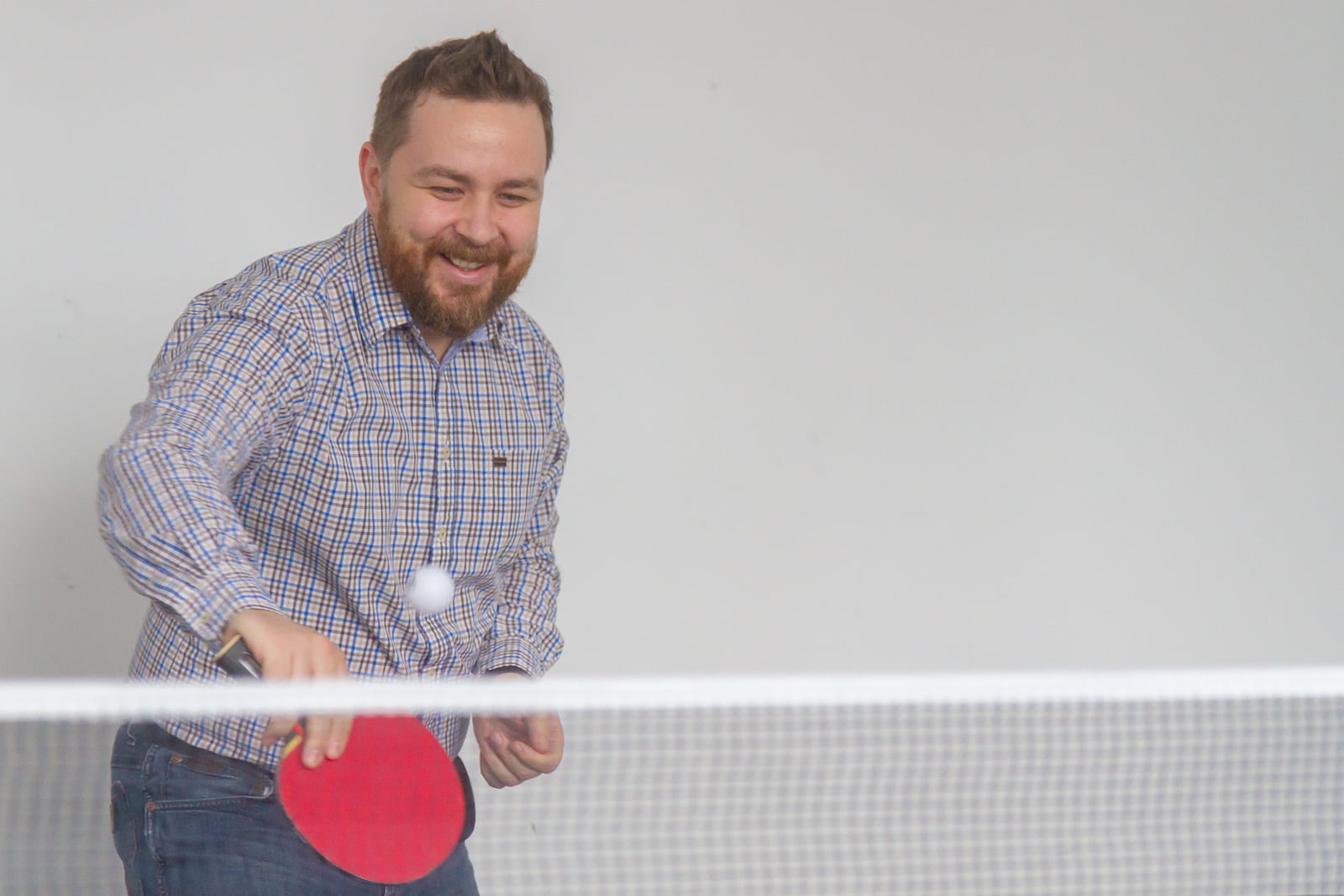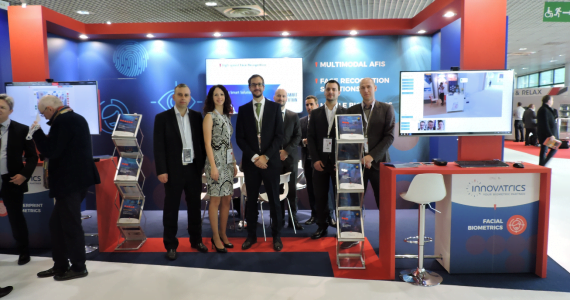
A Peek Into The Life Of An Innovatrics Delivery Solutions Manager
Martin started in Innovatrics as a technical consultant, and currently works as a solutions manager. At present, he travels all over the world as a delivery engineer. During the interview, we discovered that the delivery of biometric solutions is intertwined with both funny situations and unexpected challenges.
How did you start at Innovatrics?
Three years ago, I joined Innovatrics as a technical consultant. In that position, I usually solved technical problems with the customer, either at the tendering stage, or after successful acquisition and subsequent submission of a project from the sales team. In addition to expert consultancy, I was also in charge of the training program for clients. With the onset of more work and colleagues, I started to specialize in the delivery part of projects. A new Delivery team was created, quickly growing with other colleagues which included a project manager and delivery engineers from the ranks of internal developers.
How does the delivery of a biometric solution work?
In Innovatrics, we just call it “delivery”. Simply put, it’s a process of accepting and delivering a project under defined conditions from the very moment the sales department has sold it. We take over the communication with the customer, monitor his requirements, or make adjustments. The next step is the installation and configuration of the complete solution.
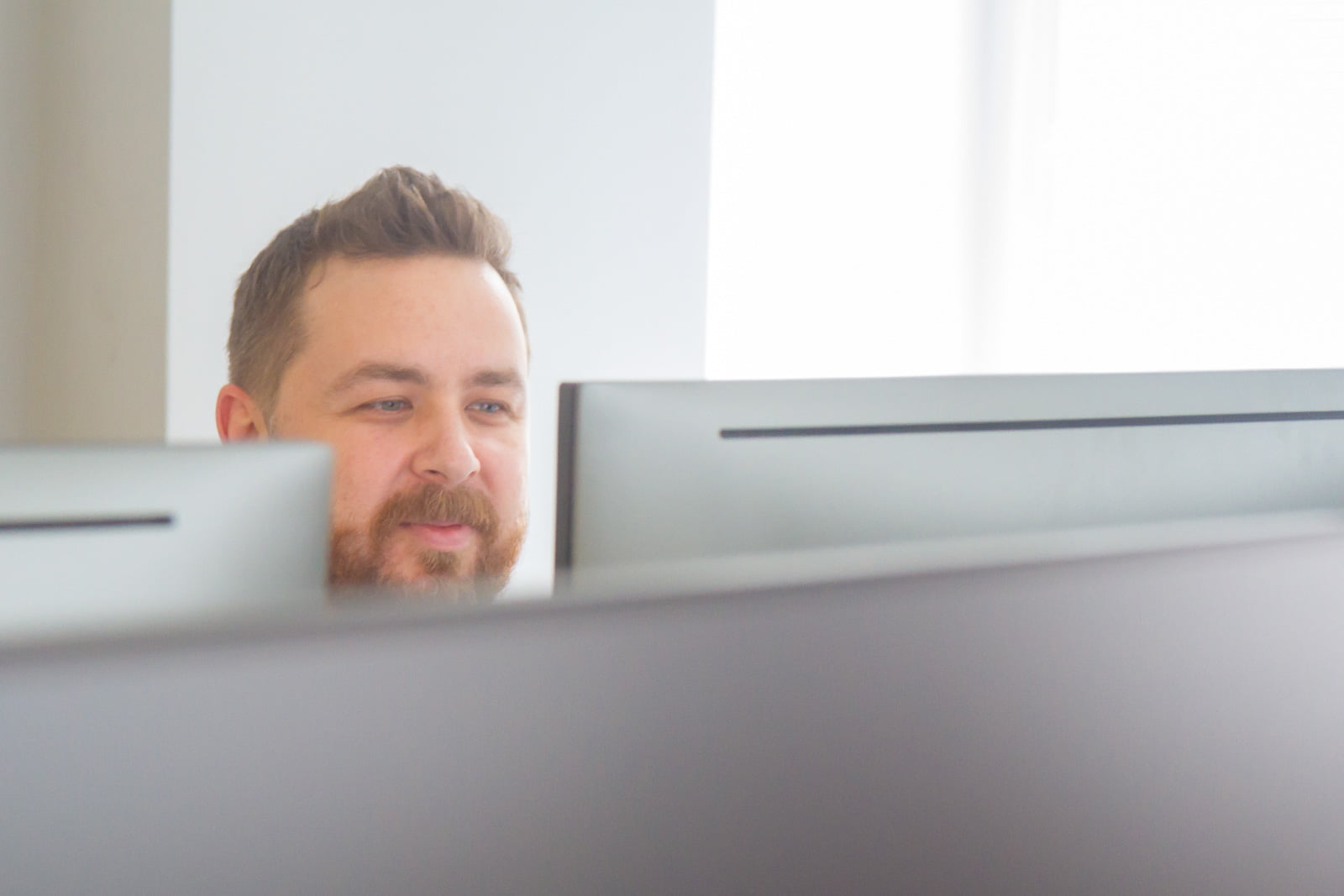
What kind of solutions are these?
In most cases, we are talking about AFIS, which is a complex product requiring customized settings according to the agreed terms. As most of the projects cannot be done remotely, our team often travels to customers and delivers the solution on-site.
So is it always necessary to travel to the customer’s country?
With the advent of the cloud, the number of projects that can be done remotely has slightly increased, but it is still a small percentage compared to those that require physical presence on site. Especially true in the final deployment stages when the acceptance tests with real data are carried out, it’s almost impossible to gain remote access due to privacy protection.
Tell us, what can AFIS be used for?
Typically, it is used to issue identification cards such as personal ID cards, biometric passports, driving licenses. Another area is the elections in African countries where, unfortunately, citizens often have no trustworthy identity cards. When the voter cards are issued, fingerprints are registered and compared with an existing database, which ensures that someone can only vote once. In addition to government projects, AFIS is also used in the banking sector to prevent identity theft. Other areas of application are border security and airport security.

How much data can fit into AFIS?
At present, our largest AFIS has 160 million registered users. Each single one of them has all the supported modalities registered, i.e. face, fingerprints and iris. For some projects, only the palm is registered, but it’s usually a combination of the three modalities mentioned. Of course, it depends on the requirements of the customer, but, in general, the more modalities we have from the given user and the higher quality of the sample, the more accurately we can identify the user. As for other AFISes, they typically have several tens of millions of users and run on dozens of servers.
Which project is the most memorable?
The project in Cameroon, where we supplied AFIS for electronic ID cards, is certainly worth mentioning. We worked in a building that was still under construction. It took them almost two weeks to bring us chairs while people with welding machines and angle grinders were walking around us all the time. We only had electricity during the day, and we had to turn the server off for the night. In the morning, they filled up the diesel generator so we could continue to work.
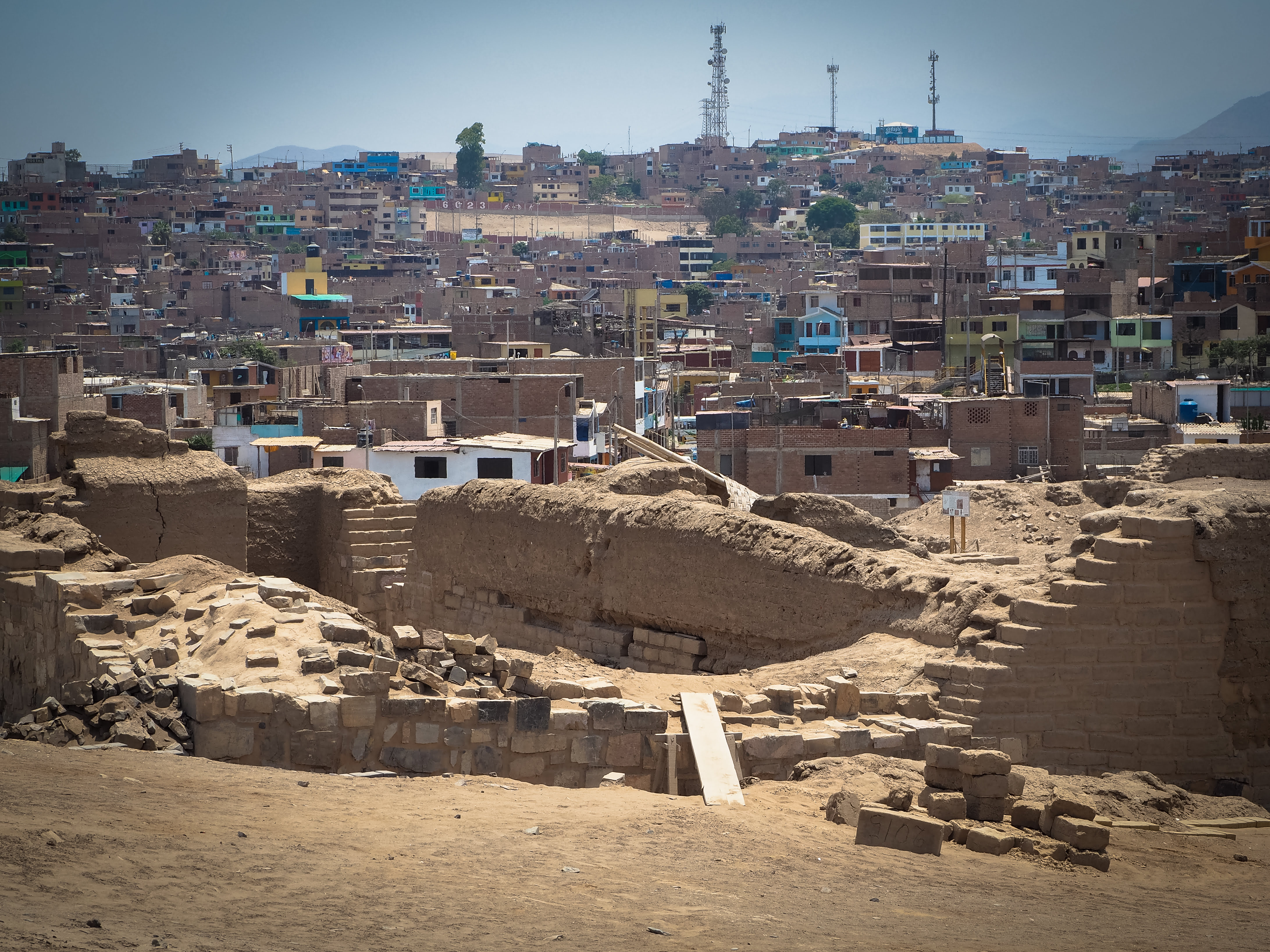
It sounds like the Africa shown in some documentaries…
The worst thing was that they didn’t have the toilets built yet, so we had to plan everyday very carefully. Conditions in Africa can be very tough in general, especially in poorer regions.
I had an unforgettable experience in Conakry in Guinea. Our business partner confused the date of my arrival, and no one was waiting for me after I arrived at the airport. My mobile phone didn’t work despite roaming which left me no choice but to arrange things myself. Fortunately, I had off-line maps on the phone, so even though the cab driver insisted on driving me around town, I eventually managed to get to the hotel.
What about safety?
When I did a delivery in Guinea, the Ebola epidemic was at its peak and it was obvious that they took it very seriously. Disinfectors were at every entrance, and they took the body temperature of everyone coming to the hotel. I had to go through inspections constantly, and I washed my hands before entering an institution. Another country I visited was Cameroon, where it was somewhat better from a health perspective, but the closeness to Nigeria was much more apparent. At the time, a local terrorist group was active mainly in the northern part of the country, and it was strongly recommended not to go for any trips because the threat of abduction was very real.
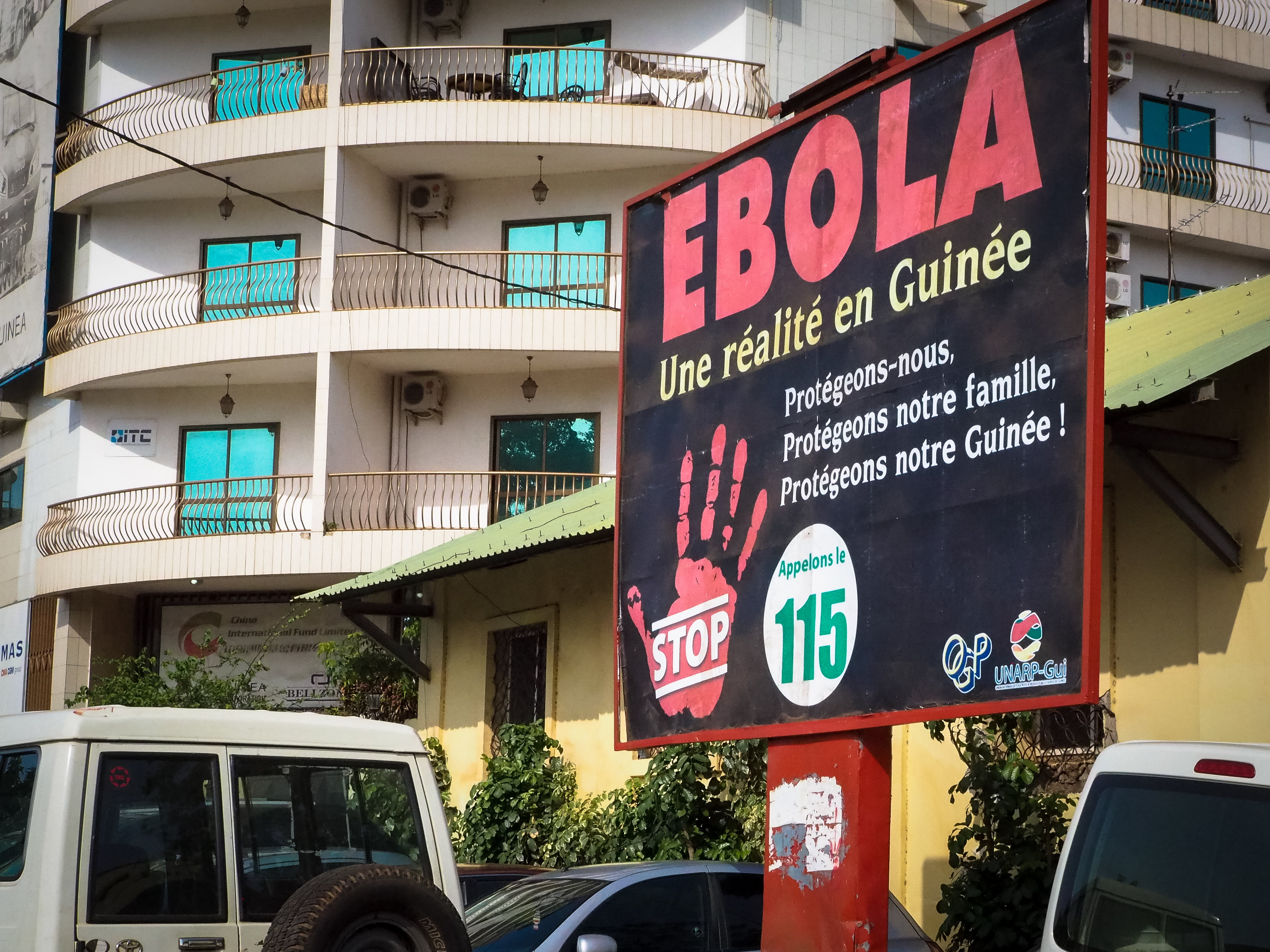
Have you also been to countries outside Africa?
Yes, I’ve also been to many other countries. The most interesting ones include Thailand, Singapore, Indonesia, Jordan, Saudi Arabia, Peru, Brazil, USA, Morocco and France. Among the most beautiful destinations were in Jordan, where I visited Petra, and the capital city, Amman, where many ruins of the Roman Empire are located. The city centre is dominated by local markets with fragrant spices, and the people are very friendly there. Another breath-taking place I’ve visited is Machu Picchu, where I managed to go during a 2-week business trip to Peru.

In your opinion, what are the necessary skills for someone who wants to work in a delivery position?
One should definitely have a very strong grasp of technical knowledge. In situations without the aid of the Internet, one has to know how to handle things alone since Murphy’s Law seems to take effect when you least expect it. It’s a regular occurrence that the biggest problems happen in the middle of the night, or when a colleague who can help is stuck in morning traffic. You have to know your way around in every situation, be able to discover the root of the problem, have systemic knowledge, know how to manage, install, understand biometrics, and last but not least, be able to handle the client. In addition to hard skills, such a person should be mentally resilient and prepared for everything. Finally, I would like to emphasize having a penchant for “professional” travel because we are talking about long, demanding (sometimes cancelled) flights. If a person traveled only for work and it was against his nature, it would be an ordeal. Having said that, the most important factor in this profession is having an extremely tolerant wife or partner.
You’re taking a break from travelling at the moment, though. What do you do in the solutions team where you’ve transferred from Delivery?
Our priority is to capture the company’s knowledge, whether internally or externally. We strive to formalize the transfer of knowledge wherein we create a platform for training with related processes. All consultants in the team have gone through technical positions and have a tremendous amount of experience. They are here to help clients develop their business. We try to understand what they are doing to give them what they need. We add extra value to make the business beneficial for both parties. Because the consultants understand biometrics, they can provide the best advice for the client. Our work is to deliver a complete tailor-made solution.
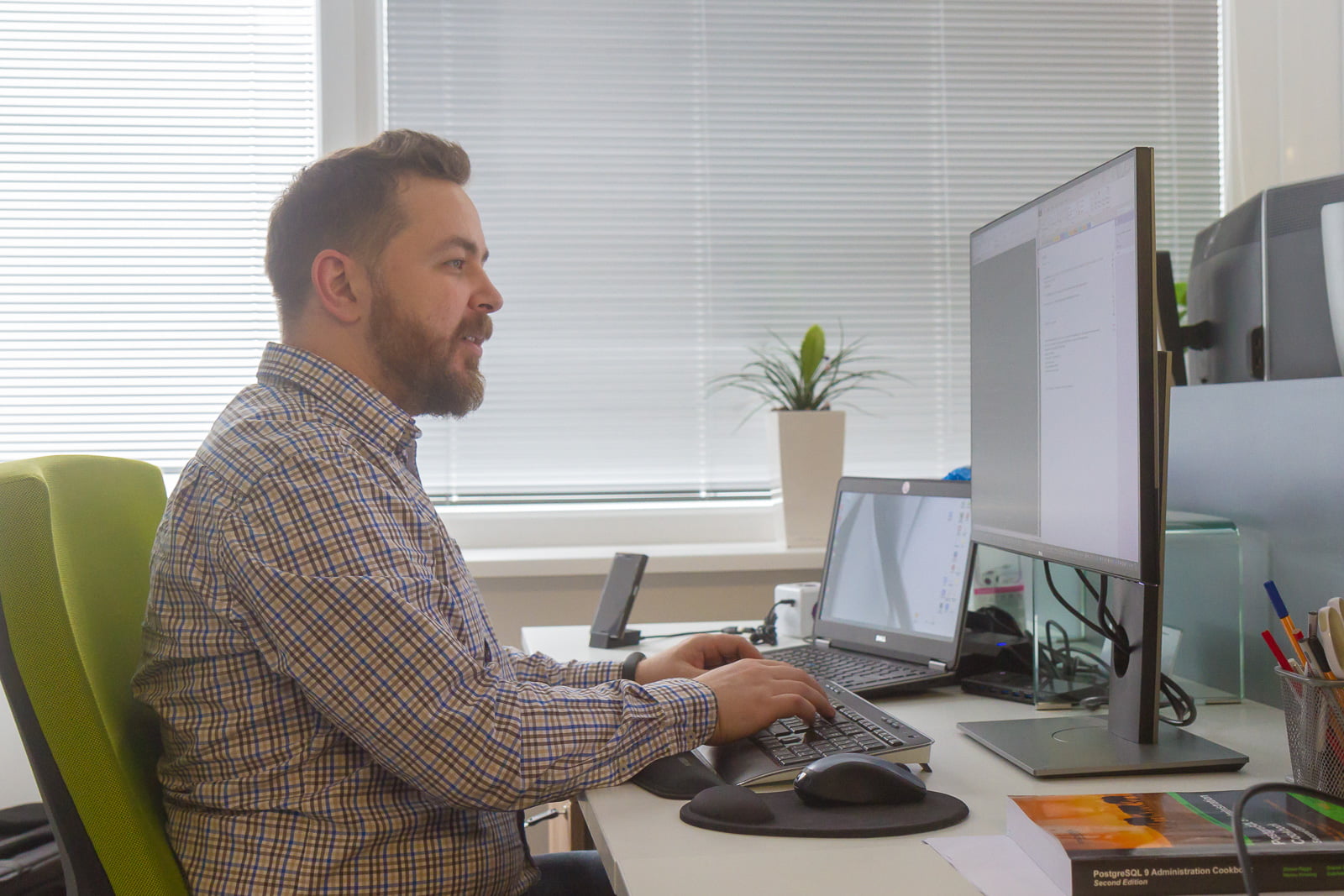
How do you see Innovatrics as such?
With all due respect to my former employers, Innovatrics is the best company I’ve ever worked for. There are a lot of smart people here, who can teach you things you didn’t even realize you didn’t know. We are a great group, and it’s evident that when a position is filled, the individuality and the suitability of the person for the team is considered. People are like-minded, and technical skills are not the only criterion for selection. Simply said, the company chooses the best people in all aspects. We have excellent benefits and an open communication line with the management. There is always an effort to find the optimal solution.
What would you like to tell to people who want to apply for a job at Innovatrics?
We are all different, of course, but I can recommend Innovatrics (without pulling your leg) not only as a job but also as a life experience (even to my best friends :)).
Martin Janušek
Martin comes from Žilina and he studied computer science at the Faculty of Mathematics and Physics at Charles University in Prague. In his free time, he likes to read fiction and has recently discovered the beauty of gardening. Unlike software development, a garden is a tangible demonstration of the effort made. His hobbies also include football, hiking and cooking. Martin is married and has three children.
